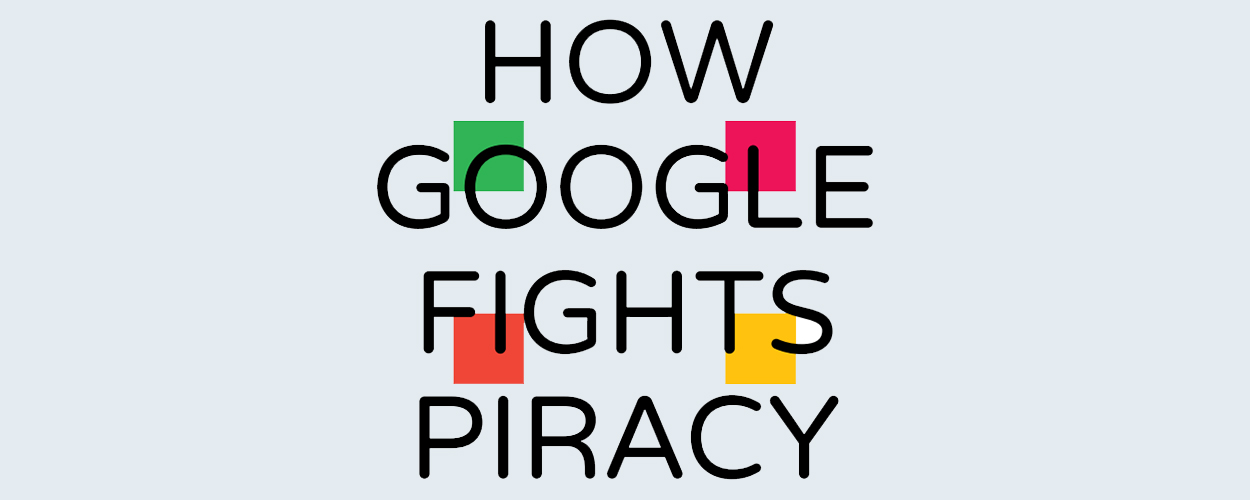This website uses cookies so that we can provide you with the best user experience possible. Cookie information is stored in your browser and performs functions such as recognising you when you return to our website and helping our team to understand which sections of the website you find most interesting and useful.
Business News Digital Labels & Publishers Legal
Music industry hits out at Google’s latest anti-piracy bragging
By Chris Cooke | Published on Thursday 14 July 2016

So welcome to Fuck Google Day, a popular event in the music community, not as big as the Grammys Weekend, but up there with Record Store Day.
It’s Google itself that has instigated these glamorous proceedings with the publication of its latest ‘How Google Fights Piracy’ report, in which the web giant brags about all the things it does across its various services to stop those evil pirates from fucking everything up by pirating pirated content through the employment of pirate-like piracy tactics on the big bad piracy networks.
But just in case someone – somewhere – isn’t convinced by all that, the Google report also bigs up all the cash the web firm has been paying over to content makers, and especially music types. I mean, as well as that much touted $3 billion it’s paid over to the music industry, do you know that YouTube’s content management platform Content ID has resulted in $2 million of ad loot being paid over to rights owners from user-generated content? Did you know that?
Of course, the music industry has big problems with Google search, principally the fact the web firm refuses to do blanket de-listings of websites that have been deemed to be rampant copyright infringers by the courts, which then requires rights owners to submit a constant flood of takedown requests against websites like The Pirate Bay and Kickass Torrents.
But it’s anything YouTube-related that really riles the music industry these days, with labels, publishers, artists, songwriters, managers and collecting societies all currently embroiled in that big battle with the Google video site over the royalties it pays – or rather the minimum guarantees it doesn’t pay – and the copyright loophole it employs to allow users to upload videos containing other people’s music.
Officially kick-starting the Fuck Google Day proceedings with a speedy overview of Google’s new ‘Look At Us, We’re Fab’ report, the boss of UK record industry trade group BPI, Geoff Taylor, told reporters: “This report looks a lot like ‘greenwash’. Although we welcome the measures Google has taken so far, it is still one of the key enablers of piracy on the planet”.
He goes on: “Google has the resources and the tech expertise to do much more to get rid of the illegal content on its services. If Google is sincere about fostering creativity online, it will now commit to implement new measures that will effectively protect artists from sites and apps that rip off their work, and help more fans get their content legally”.
Responding to Google’s Content ID bragging, the BPI also said yesterday: “Google’s Content ID system for YouTube is a great idea – content owners should only have to notify their content to Google once, and Google should then use automated technology to make sure that content is either monetised, or blocked from appearing illegally. That’s a principle that should apply right across Google services”.
“But” – because there’s always a but – “despite its amazing innovations in mapping the Earth and inventing driverless cars, Google hasn’t managed to implement a Content ID system that people can’t easily get around. Of course the fact that Google refuses to remove YouTube videos that show you exactly how to circumvent Content ID doesn’t help. Google should concentrate its formidable resources on making a Content ID system that is genuinely effective in protecting creators; and then apply a similar proactive system to Google search and its other services”.
Elsewhere, while arriving at this year’s official Fuck Google Day ball, the boss of the globally-focused record industry organisation IFPI, Frances Moore, said: “Google has the capability and resources to do much more to tackle the vast amount of music that is being made available and accessed without permission on its platforms”.
Chipping in on Content ID, she continued: “Our member record companies’ experience demonstrates that Google’s Content ID tool is ineffective in preventing infringing content appearing on YouTube. Record companies and publishers estimate that Content ID fails to identify 20-40% of their recordings”.
And then moving onto search, she added: “Google’s search engine continues to direct internet users to unlicensed music on a large scale. Well over 300 million de-list notices have been sent to Google by IFPI national groups worldwide. Despite this, the amount of traffic to infringing sites from typical music search queries sent to Google is now higher than it was before Google changed its search algorithm to supposedly address levels of piracy. Google can, and must, do more to tackle these issues and return fair value to rights holders”.
So there you have it. Happy Fuck Google Day everybody! Why not celebrate by reading our recent CMU Trends report on the music industry’s war with YouTube? Or maybe even Google’s big bad piracy report itself.





